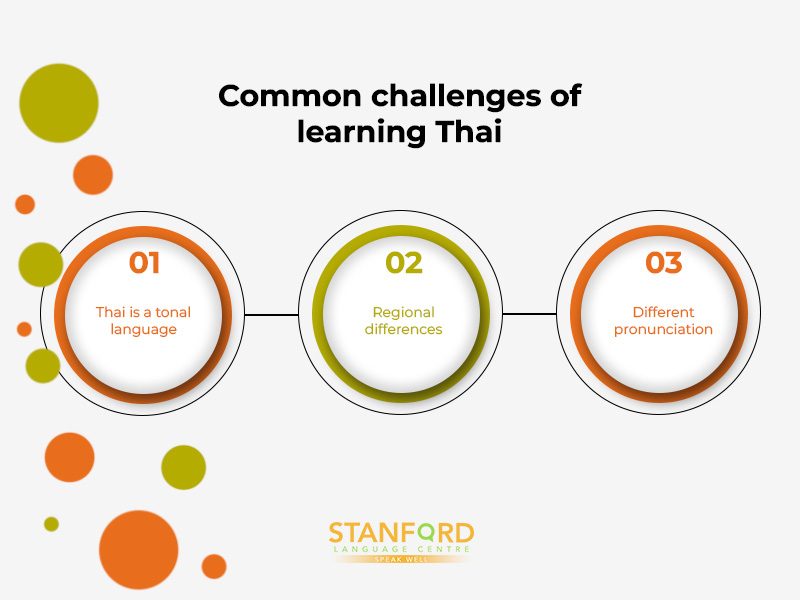30 Mar 2023
The Role of Languages in Modern Day

PART 1 – INTRODUCTION
As the fundamental aspect of human communication, language has been an essential part of human existence for ages. Since the very beginning, the origin of language has undergone constant evolution and transformation, leading to the vast diversity of languages we have today. Despite the similarity of some words in different languages, their meanings may still differ. This marks the dynamic nature of language evolution. Languages continue to change across social groups and space. In particular, pronunciations evolve from generation to generation, old word meanings transform, morphology develops or deteriorates, while new words are borrowed or discovered.
Language is now the primary tool for communication and expression, a part of our daily lives through reading, speaking and writing. The role of languages has become more significant in modern days, contributing to the rise of language learning. It is common to see more Mandarin, Japanese or Vietnamese language courses at different places. Not only does language allow you to better understand yourself and the way you behave, it also represents cultural identity and preserves cultural heritage. On top of that, language has become critical across the globe, facilitating commerce, trade, and diplomacy.
As a whole, the role of language is multifaceted and critical to understanding yourself and the world around you. Thanks to languages, global interaction, communication, cultural heritage preservation and provision of insights have all been made possible. In this article, we will take a deeper look into the topic.
Learn more: How To Incorporate Language Learning Into Your Daily Routine
PART 2 – LEARNING FOREIGN LANGUAGES TO STAND OUT IN THE BUSINESS WORLD
2.1. Getting to know the Chinese language
With over one billion native speakers, Mandarin Chinese is the most-spoken language globally. It may become even more widely spoken as China’s economic growth persists, making the language essential to learn. Whether you are planning to learn Mandarin online or attending physical language classes, getting to know the language can be a fun and exciting process.
Each Chinese character is made up of different functional components that convey meaning, which becomes a unique aspect of the language. Form, sound, and meaning are the three main types of functional components. Specifically, form components shape the character, sound components indicate its pronunciation, and meaning components provide meanings. Learning these functional components is essential for building a strong foundation in Chinese language learning.

Learn more: 4 advantages of learning Mandarin online
2.2 How learning Chinese benefits a corporation

There may be well over 1.3 billion people who speak Chinese around the globe and the language provides a plethora of advantages for businesses. As China is rising as a global economic power, Chinese language also gradually dominates in the business world, growing at an unprecedented rate. It also explains why learning Chinese is important. If you are looking to join any Mandarin class in Singapore, consider Standard Language Center to begin your learning journey. With that, let’s take a look at how learning Chinese benefits a corporation.
1. Enhances working and social relationships
Chinese literacy gives you the opportunity to build good business relations with Chinese partners, contractors, and customers, paving the way for greater trust and a more personal connection. It conveys your interest in Chinese culture and a desire to understand native speakers better. This can boost your business potential and raise your networking opportunities manifold.
2. Reduces business conflicts
Collaborating with foreign partners may be challenging, due to the difference in cultures. When working with Chinese business partners who can only speak the Chinese language, having a good understanding of the Chinese culture and etiquette is vital in avoiding unnecessary misunderstandings and conflicts, ensuring a smooth business process. In addition, familiarity with the culture also allows for a deeper insight into the mindset and behaviour of Chinese individuals. For instance, avoiding direct opposition in a negotiation and instead saying something like, ‘May I have more time to consider it?’. Such knowledge is key in business negotiations and joining a Mandarin language course in Singapore is a great first step to get the best out of the language learning process.

3. Gains competitive advantage
When it comes to career opportunities, knowing Chinese sets you apart from other employees, as it is more widely spoken than English or Arabic. This makes you instantly more competitive in the global market. The demand for Chinese speakers has been increasing in the global job market, especially with China’s position as one of the largest and fastest-growing economies. Consequently, this provides you with a greater chance of getting employed for positions that require Chinese language skills.
4. Higher profitability
Since China’s economy has been booming, the county has now become one of the trading destinations for most businesses. To ensure effective communication with Chinese customers, partners, and suppliers, Chinese language skills are an important requirement. It allows you to build solid business relationships with local vendors, expanding your customer base which ultimately drives higher profits. Furthermore, learning Chinese helps you to cut down your business expenses as you no longer have to pay for translation costs.

5. Get new insights and ideas
Learning Chinese gives you deeper insight on how the Chinese economy operates. You will also be exposed to business practices that may seem unusual but surprisingly lucrative. These can serve as inspiration for you to create your own ideas and mix the best practices from different cultures, facilitating a smoother business process.
2.3. A comprehensive guide to learning Thai for business owners
Renowned for its unique culture, warm hospitality of local people, and tropical beaches, Thailand has long been an attractive destination for tourists and expats. As a country that is strategically located in the centre of most ASEAN countries, Thailand allows easy access to the newly emerging markets of the Greater Mekong sub-region. This prime location has made it an ideal gateway to Asia, attracting businessmen from different nations to learn Thai as they seek to gain a competitive edge and venture into new business opportunities. On top of that, entrepreneurs can establish ties with local suppliers, partners and clients, unlocking fresh business prospects that can help to drive growth and improve profitability through the acquisition of Thai language skills. Meanwhile, learning Thai is no longer a new concept in Singapore. There are several local language schools and institutions that offer the language courses for those who are keen to learn it.
For this section, we will share a few advantages that businesses can gain from learning Thai language.
1. Exposure to great business innovations in Thailand
The Thai government is committed to promoting local businesses and driving socio-economic advancement. A range of initiatives have been implemented to support innovation, entrepreneurship and technology transfer in the country. For instance, the Thailand 4.0 policy aims to transform the traditional industry-based economy to one driven by technology, innovation and creativity. Entrepreneurs who learn Thai can gain insight into these innovative and proactive approaches, which are important for their local operations. In addition, being familiar with the language also enables businesses to communicate with local stakeholders such as business leaders, government officials and innovators, to gain knowledge regarding recent trends and opportunities in the region. This exposure is vital in helping entrepreneurs stay ahead of the curve and benefit from emerging business trends and opportunities in Thailand.
2. Cost-efficient and educated workforce
Learning Thai language supports corporations, ensuring a cost-efficient and educated workforce in Thailand. With a large and versatile workforce, corporations can benefit from having operations in the nation. These include low labour costs and access to a pool of skilled workers. Corporations who can communicate in Thai allows them to better connect with the local workforce and tap into their potential. Moreover, a well-established education system that produces many educated and skilled workers is implemented in Thailand. One advantage of employing these workers is that corporations can further develop and train them to fulfil their specific business needs. With adequate skills acquired, a more productive and efficient workforce is formed. This not only boosts profitability in local business, but also ensures the corporation stays competitive among its rivals.
Interested in learning Thai yet caught up in a busy schedule With the variety of language courses offered at Stanford Language Center, you may join Thai lessons online conveniently.
3. Lower living costs
Compared to many other countries, Thailand has a relatively low cost of living. This means that businessmen or expats can enjoy a comfortable lifestyle while spending less money in the country. As such, they are able to save up and set aside their funds towards other business activities or personal interests. For those who plan to start up their business in Thailand, the worry of high business establishment costs is eliminated, thanks to Thailand’s lower living costs. By saving money on everyday expenses like meals, rent, and utilities, aspiring businessmen can allocate more funds towards establishing and expanding their businesses.

2.4 Common challenges of learning Thai

No doubt, learning Thai can be a rewarding experience, but it also comes with some challenges. It is often difficult to provide a straightforward answer to questions like “is learning Thai difficult?” or “how difficult is it to learn Thai?”, as there are several variables that determine the difficulty of learning Thai, including accessibility to learning materials and the learner’s background in languages. There are also other challenges that may impact the difficulty of learning the language. Read on to discover what those are.
1. Thai is a tonal language
Thai comes with 5 distinct tones to be exact. Every syllable is pronounced with one. Tonal languages use pitch variations to differentiate between words. Different words have different meanings depending on the tone used to pronounce it. Learners may find this a challenge as they may struggle to hear the subtle differences and reproduce them accurately. This may also cause confusion and misunderstandings as new learners can find it hard to differentiate the same word that comes with different meanings, depending on the tone used. Mastering the 5 tones is essential for effective communication in Thai. Sign up for any Thai language course in Singapore to get familiar with the pronunciation.
2. Regional differences
Thailand is a big country. It comprises a broad variety of cultures throughout the different regions. Every region has its unique customs, traditions, and ways of living. All of these may affect the way Thai is spoken in that particular region. The tone, vocabulary and accent used in Thai may be different depending on the region. For example, the Thai spoken in Bangkok may sound differently from that spoken in the North, South, or Northeastern parts of Thailand. This unfamiliarity with specific dialects or regional variations can be a tough barrier to overcome.

3. Different pronunciation
Tones can make Thai pronunciations difficult. Since there are different combinations of sounds that make up words, non-native speakers may find it hard to pronounce them correctly. In addition, there is no official transliteration for Thai- online searches that will provide different results with respective spellings. The language with a vast vocabulary, making up many unique words and expressions may not have equivalents in other languages. This also challenges the learners to develop their vocabulary of Thai language.
PART 3 – THE UNIQUENESS OF VIETNAMESE LANGUAGE
3.1 What makes Vietnamese special?
Vietnamese is a unique language that features a rich history and cultural significance. It is the official language of Vietnam and the native language of the Kinh people, as well as a minority language in the Czech Republic. While attending Mandarin and Thai language classes has grown common nowadays, learning Vietnamese can be a notable experience. The learning process may be challenging but it can be rewarding as you are exposed to the complex phonetics and unique features of the language.
Vietnamese is heavily influenced by both French and Chinese, while having “international siblings” in the language family like Mon, spoken in Thailand and Myanmar, and Khmer, spoken in Cambodia. Due to the variation in phonetics, pronouncing certain sounds in Vietnamese can be difficult for non-native speakers. The Vietnamese alphabet includes diacritic marks. Apart from that, Vietnamese also contains a number of loan words from Chinese. It has six basic tones, with five of them in southern Vietnam.
As a whole, the uniqueness of Vietnamese language lies in its history, cultural significance, complexity, and distinct features, making it an intriguing and valuable language to learn.

Three key points for beginners to learn Vietnamese:
1. Choose the accent you want to learn
Before joining a Vietnamese language course, it is recommended to select the accent of the language you want to learn, in order to avoid confusion and facilitate comprehension. Northern and Southern Vietnamese are the two most common accents. Each of them comes with its own unique features, including differences in intonation, pronunciation and vocabulary. The standard accent is Northern Vietnamese, which is spoken in the capital city of Hanoi. On the other hand, Southern Vietnamese is spoken in Ho Chi Minh City and the southern region of Vietnam.
2. Figure out how to get the tones and vowels correctly
Getting the tones and vowels correct is a must when learning Vietnamese. Regarded as a tonal language, Vietnamese has six tones, which are the mid-tone, flat tone, falling-rising tone, falling tone, rising tone and rising-falling tone. In Vietnamese, the pitch or tone of a word can change its meaning. On top of the six tones, there are 11 vowels in the Vietnamese language, each has a unique sound. To ensure accurate pronunciation and a good understanding of Vietnamese, practising and differentiating between the different tones and vowels in the language is highly recommended. For example, the word “ma” can mean “ghost” (with a rising tone) or “mother” (with a mid-tone), depending on the pitch.
3. Practice makes perfect
As the saying goes, ‘practice makes perfect’., consistent and adequate practice is crucial when it comes to learning Vietnamese. Practising as much as possible improves learners’ ability to recognise and use different tones and vowels, on top of developing their listening and speaking skills. To practise speaking, learners can do so with a native speaker or a language exchange partner. They can improve their pronunciation after receiving feedback from mentors. Alternatively, it may be helpful to watch Vietnamese movies and listen to Vietnamese when learning the language, as it can familiarise learners with the intonation. Never be afraid to make mistakes, as making errors is a natural part of the language learning process.
3.2 Learning Mandarin, Thai and Vietnamese with Stanford Language Centre
Stanford Language Center provides quality and affordable language classes in Singapore, including those for Mandarin and Thai, as well as skillsfuture language courses. Refer to the following details of each of the lessons offered at the centre.
1. Mandarin classes
Our Chinese class allows you to learn useful conversational skills, Mandarin for daily use, as well as understand Han Yu Pin Yin (Chinese Pronunciation). You will also be taught to speak with correct intonation.
Types:
- Basic Conversational Mandarin Course ( Beginner Level 1)
- Basic Conversational/Mandarin Course Singapore – Face to Face Group Course
- 2 weeks Intensive Basic Conversational
- Mandarin Course Singapore (For Adults) Face to Face Group Class
- Private Personal Mandarin Coaching
Duration: 10 lessons
Price: From $189.00
2. Thai classes
Our Thai classes are conducted by Thai native teachers. Non-Thai speakers will be exposed to the following learning aspects:
- Dialogue
To learn dialogue conducted by two or more people, focus on daily conversation.
- Grammar
Breaks down all of the new sentence structures introduced in the dialogue and reinforces them by indicating example sentences.
- Vocabulary
New vocabulary for the lesson, with translation and pronunciation.
- Exercises
To test comprehension of the material through questions and activities.
Types:
- Basic Conversational Thai For Beginner Level 1
- (Basic Conversational Thai Course) Face to Face Group Class
- (Basic Conversational Thai Course) Online Group Class
- (Basic Conversational Thai Course) Face to Face Group Class
- Introduction to Thai Writing & Reading Course
- (Basic + Intermediate Conversational Thai Course) Face to Face Group Class
Duration: From 10 sessions
Price: From $189.00
3. Vietnamese classes
We leverage modern teaching strategies to impart communication skills to non-Vietnamese speakers. Our Vietnamese classes enable you to:
Learn necessary vocabulary,expression, grammar rules and sentence patterns used in every speech.
Learn practical and natural speech currently in use by the Vietnamese people.
Practise in pronunciation and communication.
Emphasise on speaking and listening skills in Vietnamese class.
Take part in clear and logical exercises incorporated with modern languages teaching methods.
Types:
Elementary Vietnamese Lessons Singapore Level- Basic Vietnamese For Beginner level
Duration: 10 lessons
Price: From $258.00
Learn more: Benefits Of Learning A Foreign Language
3.3 Questions you may have
- How long does it take to learn a foreign language?
It may take roughly three months to two years for you to learn how to speak, read and write in a new language fluently.
- What are the career opportunities for learners of the second language?
Being multilinguistic opens up the door to a variety of job opportunities, including translators, tour guides, language teachers and many more.
- How can students benefit from learning a foreign language?
Students are exposed to different cultures, encouraging respect for diversity and enhancing empathy and communication skills. This paves the way for more open-mindedness and broadens horizons. Apart from self development, career opportunities abound as well, opening the door to different professions across the globe..
PART 4 – CONCLUSION
Language shapes our interactions, perspectives, and understanding of the world around us. Not only do we use language to communicate, but also to express ideas, thoughts, and emotions. The role of language in this era extends beyond personal communication to fields, namely diplomacy, education and business. Knowledge of multiple languages is also vital in various fields, as globalisation and multiculturalism grows. Such fields include but are not limited to law, medicine, and technology.
In addition, multilingualism also helps to create more inclusive and harmonious societies as individuals are able to communicate effectively with others who come from diverse backgrounds. A deeper understanding and appreciation for various subjects such as cuisine, music, art and philosophy, can be developed through the study of diverse languages and cultures.Ultimately with all the benefits mentioned, spending time and effort in learning a foreign language is definitely worth the investment.
Stanford Language Center offers language courses in Singapore, ensuring learners can gain necessary understanding, speaking , writing and reading skills within the shortest period. We aim to be the most affordable Asian language provider in town. Contact us now for more information.



